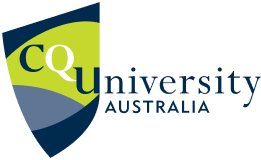| Rank threshold | ATAR: 69 SR: 69 |
| Duration | 3 years full-time, 6 years part-time |
| Location | Online and Rockhampton |
| Next start term | Term 2, 2024 |
| Study mode | On Campus, Online |
| Course code | CU18 |
| First-year fee | $10,788 (Indicative) (CSP) |

Overview
Discover how science can solve current and future medical, environmental, industrial and technological problems and launch your dynamic career in this field with CQUniversity's Bachelor of Science and Environment (formerly Bachelor of Science). Enjoy the flexibility to tailor your degree to suit your interests and career goals with a choice of majors in Botany and Zoology, Chemistry, Earth and Climate Science or Environmental Management, and a range of minors available.
The Bachelor of Science and Environment equips you with the skills and knowledge for a fulfilling career in science. Throughout the course you'll participate in practical learning experiences, both on campus and in the field and develop the ability to think critically and solve complex problems. Your core units of study will have a skills-focus to help you develop field and laboratory competencies useful for research and desired by industry and government. Further study will include transdisciplinary subjects in your chosen major and minor, such as geography, sustainability, agriculture, and community engagement, in addition to underpinning biological and chemical sciences, will develop skills and knowledge that enable you to contribute to the sustainability of ecosystems and societies.
You may choose from majors in Chemistry, Botany and Zoology, Environmental Management or Earth and Climate Science, all of which incorporate aspects of environmental studies. You'll further tailor your science degree to your interests and career goals by choosing a minor from a broad range of complementary fields:
- Agronomy
- AgTech
- Botany and Zoology
- Chemistry
- Earth and Climate Science
- Environmental Management
- Liberal Studies
- Livestock
- Sustainable Futures
You will benefit from field trips to a variety of destinations, such as coral reefs, intertidal and terrestrial ecosystems, mainland vegetation communities, agricultural enterprises, mine and other land degradation sites and freshwater and estuarine environments. You will have the option to undertake an industry placement as part of your studies, allowing you to network professionally while completing your studies. Alternatively, you may opt to complete a short research project to apply your knowledge in a real-world context.
Study experience
- Authentic Learning Experiences
- Global Experiences
- Seamless Pathways
- Work-integrated learning
Career Opportunities
Completion of the Bachelor of Science and Environment will prepare you to pursue employment opportunities in fields such as:
- chemical and material production
- agriculture
- medical sciences
- mining and metals
- power industries
- environmental science and ecology
- food technology
- forensic analysis
- research and development.
Structure & Availability
Term 1, 2025, Course Structure
This course has a refreshed course structure commencing in Term 1, 2025. You are required to complete 24 units, comprising eight core units, one eight-unit major, and an eight-unit minor.
Majors available
- Chemistry,
- Botany and Zoology,
- Environmental Management or
- Earth and Climate Science
Minors available
- Agronomy
- AgTech
- Botany and Zoology
- Chemistry
- Earth and Climate Science
- Environmental Management
- Liberal Studies
- Livestock
- Sustainable Futures
Term 2, 2024 Course Structure
If you're interested in applying for Term 2, 2024, you are required to complete 24 units, comprising eight core units, one eight-unit major in either Applied Biology or Applied Chemistry, and two four-unit minors.
If you commence in Term 2, 2024, our course advisors will work with you to make sure you're on an up-to-date study plan.
Unit information
For information on the units you could study as part of this course, visit the Handbook and select the "Course Structure" tab.
Credit transfer information
If you have already completed study relevant to the course you have enrolled in, you may be eligible for credit transfer.
On-Campus Availability
| Intake | Locations |
|---|---|
| Term 1, 2024 | Rockhampton |
| Term 2, 2024 | Rockhampton |
| Term 1, 2025 | Rockhampton |
| Term 2, 2025 | Rockhampton |
Online Availability
| Intake | Locations |
|---|---|
| Term 1, 2024 | Available Online |
| Term 2, 2024 | Available Online |
| Term 1, 2025 | Available Online |
| Term 2, 2025 | Available Online |
Majors available from Term 1, 2025
- Chemistry,
- Botany and Zoology,
- Environmental Management or
- Earth and Climate Science
Minors available from Term 1, 2025
- Agronomy
- AgTech
- Botany and Zoology
- Chemistry
- Earth and Climate Science
- Environmental Management
- Liberal Studies
- Livestock
- Sustainable Futures
Professional Placement or Project - BIOL12050
BIOL12050 - This unit provides students with an opportunity to apply the theoretical knowledge and practical skills attained in their degree course to the professional work environment. Students will undertake either a) an industry placement, or b) a short research project for 120 hours. They will report on their experience in an appropriate format, identifying the nature of the work and activities undertaken. They will also reflect on how the knowledge gained and the skills developed during placement relate to their course of study and their future career.
Requirements
To be eligible
For your application to be considered, you must meet the following entry requirements.
Student and Course Profiles
View the student and course profiles for this course and learn about CQU's Undergraduate Profile for Term 1, 2024 via our Institute Profile.
During your study
While not needed to apply, you'll need to meet the following requirements throughout your studies.
Fees & Scholarships
Indicative First-Year Fee
The Indicative First-Year Fee is the approximate cost of enrolling in this course for one full-time academic year (eight units over two terms) for a Commonwealth Supported Place (CSP). Your actual fees may vary, depending on the units you select to study and your study load. Fees are reviewed each year and are subject to change. Understanding your fees.
Commonwealth Supported Places
This course has Commonwealth Supported Places (CSPs) available, and as a domestic student, you'll be offered a CSP, provided you meet CSP eligibility requirements. CSPs are subsidised by the Australian Government, meaning you are only required to pay the student contribution rather than full tuition fees.
HECS-HELP Loan
You may be eligible for a HECS-HELP government loan if you are offered a CSP. HECS-HELP is an Australian Government loan scheme that assists you in paying your student contributions. Provided you meet the HECS-HELP eligibility criteria, you may use HECS-HELP to defer part or all of your student contribution fees.
Part of your course costs will include Student Services and Amenities Fees (SSAF). SSAF is charged in addition to your student contribution or tuition fees and is used to help enhance your study experience. There may also be other costs as part of your studies, such as textbooks, technology expenses, travel expenses, professional certifications, uniforms, or vaccinations. Explore other study costs.
We believe a quality education can be for everyone – regardless of background, location, or life circumstances. That's why we offer a variety of scholarships and bursaries that can give you a helping hand with a range of expenses and enhance your employability.
How to apply
How to apply
Check what you need to do to apply to study this course.
Your application options
Follow these steps
Extra admission information
Prior to applying, take a look at important application dates and learn about our admission considerations, such as information for domestic students with overseas qualifications, indigenous support, and elite athlete, coach and performer support. You should also check out the adjustment schemes that might be available to you and how to access them. You can also explore our offer information to learn more about what happens after you've submitted an application and how to respond to an offer to study with CQU.
Start your application
When applying through a tertiary admissions centre (TAC) you can use the relevant TAC code below to search for a course or add it to your application preferences.


